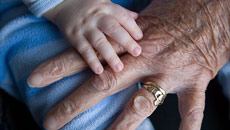Sleeping is a gradual process and researchers have now developed a method to estimate the dynamic changes in brain activity and behaviour during the transition from wakefulness to sleep.
The research could lead to new treatment for sleep disorders.
"We now have the power to chart the entire trajectory of your neurological, physiological and behavioural activity as you transition from wake to asleep, rather than simply reporting the time it takes," said lead study author Michael Prerau from the Massachusetts General Hospital (MGH) in the US.
Current clinical criteria define sleep as beginning when the power of an individual's alpha-range brain waves disappear.
The new study established that increasing power in two other brain waves - delta and theta frequencies - point towards the change in behaviour during the transition from wakefulness to sleep.
"These results suggest that it is the presence of delta and theta power, rather than the lack of alpha power, that is necessary for the cessation of behaviour," Prerau added.
"We may need to carefully re-examine the way sleep onset is defined, since behaviour is an essential component of the story that is not measured clinically," Prerau said.
For the study participants were asked to hold a small rubber "stress ball" in one hand and squeeze the ball with every intake of breath and release it when exhaling.
The researchers found that two of the nine participants continued to correctly time their ball squeezes for several minutes after alpha levels had dropped.
Only when the power in their brain waves at the theta and delta frequencies had risen did both the behavioural and physiological measures indicate that they were asleep.
The findings appeared in the journal PLOS Computational Biology.






